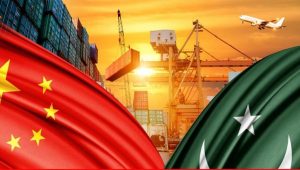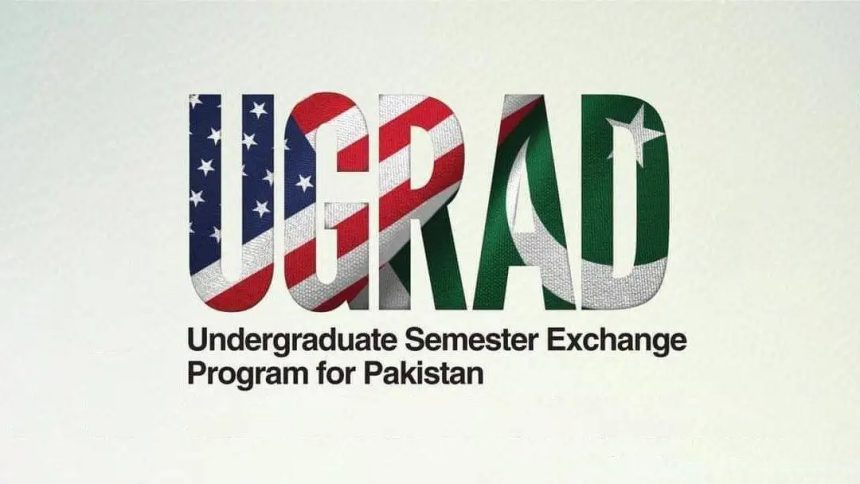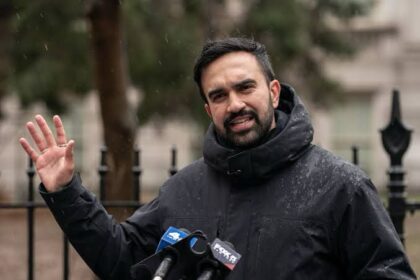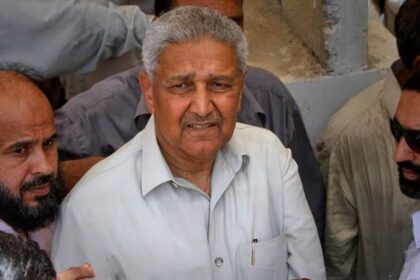With recent news regarding American policies leaving everyone in shock, today’s agenda didn’t do anything less by marking an unfortunate day for many participants and aspirants of the Global UGRAD Program in Pakistan. Global UGRAD was a programme initiated by the Bureau of Educational and Cultural Affairs (ECA) of the US Department of State that offered a fully funded cultural exchange programme to university students from all around the globe, providing them with an opportunity to experience a semester with a college in the U.S. Beginning in 2010, it had continued on for 15 years until it was announced to be terminated this Tuesday in Pakistan. The United States Educational Foundation in Pakistan (USEFP) reported,
“We understand that this news may be disappointing, especially for those who applied this year and were looking forward to this opportunity. Over the years, the Global UGRAD Program has provided life-changing experiences to thousands of students, fostering academic growth, cultural exchange and leadership development.”
Impact of the America First Project on Educational Programmes:
With recent developments in the political arena of the U.S. spearheaded by Trump’s government, it doesn’t come as a shocker to many that such a program was dismissed so effortlessly. Especially with the recent “America First” agenda of the US government, a more stringent approach towards trade protectionism and international commitments has been observed. Moreover, with the recent turn of events, many international Fulbright scholars are also caught up in a fit of uncertainty, especially since their funds have already been revoked once for a 15-day long pause on all disbursements for current and future grants on February 12, 2025. The future of such prestigious programmes such as Fulbright is also prey to such unpredictability. With the US government cancelling 400 Pakistani visas just this week, limited hope is left for similar educational programmes. This notion is further supported by the discontinuation of a hefty 30.7 million dollar fund previously dedicated to the Merit and Needs-Based Scholarship Program.

Suspending of USAID Projects and its Implications:
Recent US policies have not only targeted the educational aspect of Pakistan; rather, they also have a burgeoning impact on energy, agriculture, human rights, health, governance and many other sectors of the country as well. Suspending aid projects worth over 845 million dollars has led to a standstill for many organisations and NGOs within the country. To be exact, such policies have impacted 39 USAID-funded projects in Pakistan. These projects include the dismissal of the Integrated Health Systems Strengthening and Service Delivery Integrated Health Systems Program, worth 88 million dollars, aiming to strengthen Pakistan’s infrastructure. Moreover, another result of such policies proves to have a detrimental impact on the tribal areas of FATA, with the Merged Areas Governance Program, valued at 40.7 million dollars, being wound up along with many other projects. As if this wasn’t enough, a 29 % tariff has also been imposed on Pakistani exports, leading to a decline in Pakistan’s stock exchange and export revenues. Such actions are predicted as pushing Pakistan into seeking alternative markets and strengthening regional partnerships, which takes us to our next point.
Geopolitical Implications and the Pak-China Economic Corridor:

Analysts have justified such changes as America’s pressure on Pakistan. With the China-Pakistan Economic Corridor (CPEC) gaining strength, it has threatened the previous alliance of America and Pakistan as a result of Pakistan partnering with America’s competitor, China. As a result, such backpedalling of funds may be aimed at scaring Pakistan into submission.
Need for Pakistan to Pursue Self-sufficiency:
Such cuts in aid only make us realise the extent of our reliance on US meddling in our state affairs. We have been economically crippled to the point where we as a country are unable to provide for ourselves. Ranging from our basic needs, such as education, to the extent of governance, we need the support of a state that resides thousands of miles away. Since the making of Pakistan, our people have seen everything except for a shift of dependence from the US. Making self-sufficient policies should be at the forefront of our agenda, especially at a time of such an economic crisis. For once, the policymakers sitting in the capital should dismiss their conflicting priorities and petty political grievances and should prioritise a self-preservative strategy.












